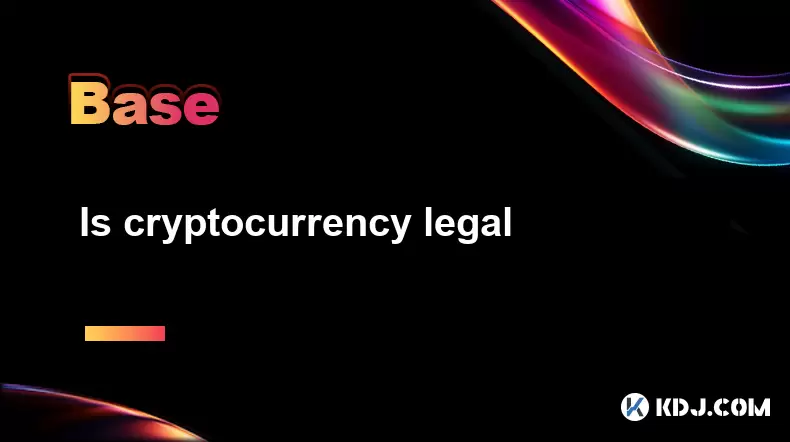-
 Bitcoin
Bitcoin $118400
0.39% -
 Ethereum
Ethereum $3814
2.17% -
 XRP
XRP $3.547
1.34% -
 Tether USDt
Tether USDt $1.000
0.00% -
 BNB
BNB $769.5
2.95% -
 Solana
Solana $191.7
6.36% -
 USDC
USDC $0.9999
0.01% -
 Dogecoin
Dogecoin $0.2722
7.75% -
 Cardano
Cardano $0.8995
5.59% -
 TRON
TRON $0.3158
-0.78% -
 Hyperliquid
Hyperliquid $47.37
4.46% -
 Stellar
Stellar $0.4848
3.54% -
 Sui
Sui $4.031
1.72% -
 Chainlink
Chainlink $20.11
3.94% -
 Hedera
Hedera $0.2832
3.16% -
 Avalanche
Avalanche $26.20
4.27% -
 Bitcoin Cash
Bitcoin Cash $530.5
0.67% -
 Shiba Inu
Shiba Inu $0.00001568
3.59% -
 Litecoin
Litecoin $118.4
1.42% -
 UNUS SED LEO
UNUS SED LEO $8.976
-0.23% -
 Toncoin
Toncoin $3.349
2.54% -
 Polkadot
Polkadot $4.590
2.54% -
 Uniswap
Uniswap $10.56
-0.59% -
 Ethena USDe
Ethena USDe $1.001
0.00% -
 Monero
Monero $327.7
0.39% -
 Pepe
Pepe $0.00001422
2.62% -
 Bitget Token
Bitget Token $4.973
-1.22% -
 Dai
Dai $1.000
0.02% -
 Aave
Aave $331.9
1.59% -
 Bittensor
Bittensor $429.6
-0.56%
Is cryptocurrency legal
Cryptocurrency legality varies globally, with some countries embracing it as legal tender while others impose strict regulations or bans.
Jul 12, 2025 at 12:22 am

Understanding the Legal Status of Cryptocurrency
The legality of cryptocurrency varies significantly across different countries and jurisdictions. In some regions, cryptocurrencies are fully recognized as legal assets, while in others, they face strict regulations or outright bans. The decentralized nature of cryptocurrencies like Bitcoin and Ethereum has made it challenging for governments to control or regulate them effectively. However, many countries have introduced specific laws or guidelines to manage their use within financial systems.
In the United States, for example, cryptocurrencies are considered property by the Internal Revenue Service (IRS) and are subject to capital gains taxes. Additionally, businesses dealing with digital assets must comply with anti-money laundering (AML) and know-your-customer (KYC) regulations enforced by agencies such as FinCEN. On the other hand, countries like China have imposed stringent restrictions on cryptocurrency transactions and mining, citing concerns over financial stability and illicit activities.
Regulatory Approaches Around the World
Different nations adopt diverse regulatory frameworks when it comes to cryptocurrency. Some embrace innovation and encourage blockchain technology development, while others remain cautious due to risks associated with volatility and potential misuse. For instance, Japan recognizes Bitcoin as a legitimate payment method under its Payment Services Act, requiring exchanges to register with the Financial Services Agency (FSA). Similarly, Switzerland treats cryptocurrencies favorably, allowing companies involved in blockchain to operate under relatively lenient conditions.
Conversely, India has experienced fluctuating policies regarding cryptocurrency, ranging from banking restrictions to proposed legislation that could criminalize unauthorized trading. Meanwhile, Nigeria initially banned banks from facilitating crypto transactions but later reversed this policy, acknowledging the growing demand for digital currencies among its population. These varying approaches highlight how legal status often reflects broader economic strategies and technological readiness within each country.
Taxation and Reporting Obligations
One critical aspect of cryptocurrency legality involves understanding tax obligations tied to ownership and usage. Many governments now require individuals and businesses to report income derived from crypto transactions accurately. Failure to do so can result in penalties or audits conducted by revenue authorities. In most cases, profits made through buying/selling crypto are treated similarly to stock investments, necessitating careful record-keeping and timely reporting.
To ensure compliance, users should maintain detailed logs of all trades, including dates, amounts exchanged, values at time of transaction, and wallet addresses if applicable. Platforms offering tax assistance tools—such as CoinTracking or CryptoTaxCalculator—can simplify tracking these details automatically. Furthermore, consulting with a professional accountant familiar with cryptocurrency taxation may prove beneficial, especially for high-volume traders or investors holding multiple types of digital assets.
Anti-Money Laundering (AML) Requirements
Given concerns about illegal activities facilitated via anonymous transfers, numerous jurisdictions enforce AML measures targeting virtual currency operators. Exchanges, wallets providers, and other service entities typically need licenses demonstrating adherence to established protocols aimed at preventing financial crimes. These requirements generally include performing customer identification procedures, monitoring suspicious behaviors, and submitting reports whenever necessary.
For example, European Union directives mandate that crypto platforms implement robust KYC processes before permitting account creation. Users might be asked to provide government-issued IDs, proof of address documents, selfies holding official papers, etc., depending upon platform-specific rules. By enforcing these checks rigorously, regulators aim to minimize opportunities for criminals exploiting loopholes inherent in decentralized networks where traditional oversight mechanisms don't apply directly.
Consumer Protection Measures
As adoption increases globally, protecting end-users becomes paramount within evolving crypto ecosystems. Several countries have begun establishing consumer safeguards addressing issues like fraud prevention, dispute resolution mechanisms, compensation schemes covering exchange insolvencies, etc. While comprehensive protections aren't universally available yet, initiatives promoting transparency around pricing structures, risk disclosures during onboarding phases, and secure custody practices represent positive steps forward.
Consumers engaging with crypto services should prioritize platforms exhibiting strong security features—such as cold storage solutions, two-factor authentication options, insurance coverage against theft losses, etc.—to mitigate personal liability exposure. Additionally, staying informed about local rights afforded under existing laws helps individuals respond appropriately should disputes arise concerning unauthorized access incidents, failed withdrawals, misleading advertising claims, or similar grievances impacting user experiences negatively.
Frequently Asked Questions (FAQs)
Q: Can I legally mine cryptocurrency in my country?
A: Mining legality depends largely on national policies governing energy consumption levels, environmental impact assessments, licensing prerequisites for commercial operations, etc. Before setting up mining rigs locally, review current statutes applicable to computational resource utilization alongside any zoning ordinances restricting industrial-scale hardware deployments residentially.
Q: Are peer-to-peer crypto transactions monitored by authorities?
A: Direct transfers between private parties occur off centralized infrastructures; however, certain governments mandate data retention mandates compelling intermediaries to disclose participant metadata linked to cross-border flows exceeding predefined thresholds. Always assume pseudonymous interactions carry traceability implications given advancements in forensic analytics capable of linking blockchain trails back to real-world identities eventually.
Q: What happens if I accidentally send funds to an incorrect address?
A: Reversals aren't natively supported within distributed ledger technologies since consensus models rely immutably upon validated entries. Contact recipient requesting voluntary return constitutes primary recourse unless custodial third-parties hold keys enabling administrative intervention possibilities otherwise unattainable autonomously post-execution completion stages.
Disclaimer:info@kdj.com
The information provided is not trading advice. kdj.com does not assume any responsibility for any investments made based on the information provided in this article. Cryptocurrencies are highly volatile and it is highly recommended that you invest with caution after thorough research!
If you believe that the content used on this website infringes your copyright, please contact us immediately (info@kdj.com) and we will delete it promptly.
- Shiba Inu Dreams vs. Bitcoin Solaris Reality: Decoding the Price Explosion Potential
- 2025-07-22 03:50:13
- Riding the Altseason Wave: Crypto Presales and Wallet Raises to Watch
- 2025-07-22 03:50:13
- Dogecoin Price Prediction: Can DOGE Rally to $1 After Recent Surge?
- 2025-07-22 03:55:12
- Crypto Stocks, Stablecoin Law & Trump: A New Era?
- 2025-07-22 02:30:12
- Kaito, Web3, and Crowdfunding: A New Era of Capital Alignment?
- 2025-07-22 02:30:12
- Saylor, Trump, and Bitcoin: A New York Minute on Crypto's Power Trio
- 2025-07-22 00:50:12
Related knowledge

What is the difference between CeFi and DeFi?
Jul 22,2025 at 12:28am
Understanding CeFi and DeFiIn the world of cryptocurrency, CeFi (Centralized Finance) and DeFi (Decentralized Finance) represent two distinct financia...

What is the difference between a sidechain and a Layer 2?
Jul 20,2025 at 11:35pm
Understanding the Concept of SidechainsA sidechain is a separate blockchain that runs parallel to the main blockchain, typically the mainnet of a cryp...

What is the Inter-Blockchain Communication Protocol (IBC)?
Jul 19,2025 at 10:43am
Understanding the Inter-Blockchain Communication Protocol (IBC)The Inter-Blockchain Communication Protocol (IBC) is a cross-chain communication protoc...

How does sharding improve scalability?
Jul 20,2025 at 01:21am
Understanding Sharding in BlockchainSharding is a database partitioning technique that is increasingly being adopted in blockchain technology to enhan...

What is the "crypto trilemma" of scalability, security, and decentralization?
Jul 19,2025 at 06:28pm
Understanding the Concept of the Crypto TrilemmaThe crypto trilemma refers to the challenge of simultaneously achieving scalability, security, and dec...

What is a cliff and vesting schedule in tokenomics?
Jul 20,2025 at 10:28am
What Does a Cliff Mean in Tokenomics?In tokenomics, a cliff refers to a specific period during which token holders are not allowed to access or transf...

What is the difference between CeFi and DeFi?
Jul 22,2025 at 12:28am
Understanding CeFi and DeFiIn the world of cryptocurrency, CeFi (Centralized Finance) and DeFi (Decentralized Finance) represent two distinct financia...

What is the difference between a sidechain and a Layer 2?
Jul 20,2025 at 11:35pm
Understanding the Concept of SidechainsA sidechain is a separate blockchain that runs parallel to the main blockchain, typically the mainnet of a cryp...

What is the Inter-Blockchain Communication Protocol (IBC)?
Jul 19,2025 at 10:43am
Understanding the Inter-Blockchain Communication Protocol (IBC)The Inter-Blockchain Communication Protocol (IBC) is a cross-chain communication protoc...

How does sharding improve scalability?
Jul 20,2025 at 01:21am
Understanding Sharding in BlockchainSharding is a database partitioning technique that is increasingly being adopted in blockchain technology to enhan...

What is the "crypto trilemma" of scalability, security, and decentralization?
Jul 19,2025 at 06:28pm
Understanding the Concept of the Crypto TrilemmaThe crypto trilemma refers to the challenge of simultaneously achieving scalability, security, and dec...

What is a cliff and vesting schedule in tokenomics?
Jul 20,2025 at 10:28am
What Does a Cliff Mean in Tokenomics?In tokenomics, a cliff refers to a specific period during which token holders are not allowed to access or transf...
See all articles

























































































